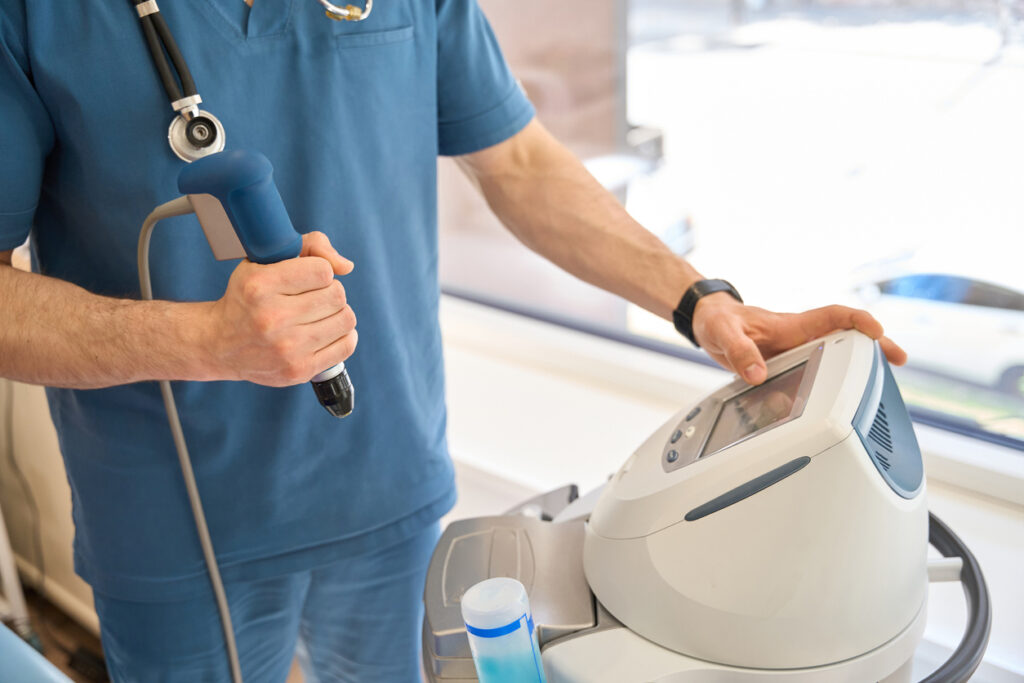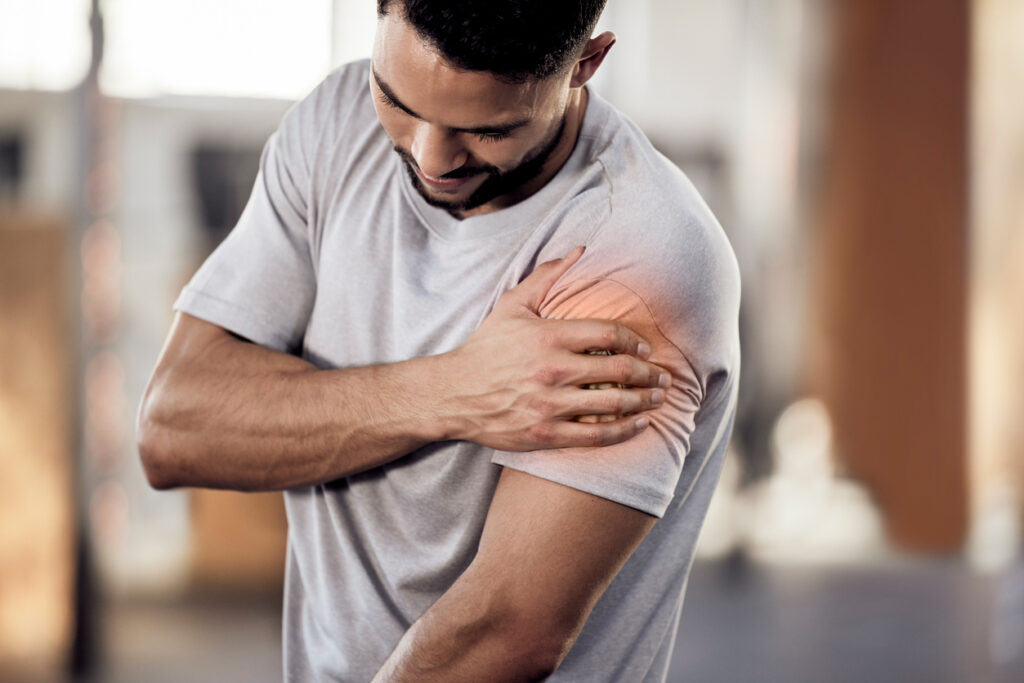Pain can be a persistent and debilitating companion, affecting various aspects of our daily lives. Among the many types of pain that people experience, knee pain stands out as one of the most common. It can show up in many ways, and one of the more unsettling sensations is a burning feeling in the knee.
Symptoms of Burning Knee Pain
Knee pain is not a simple condition. It can take on various forms, with a burning sensation just one of them. To address this issue effectively, it’s crucial to understand the varying symptoms that can come with knee pain.
- Persistent Burning Sensation: Burning knee pain is often characterized by an ongoing and uncomfortable burning sensation within the knee joint, which can vary in intensity.
- Swelling, Redness, and Warmth: You may notice accompanying symptoms like swelling, redness, or warmth in the affected area, indicating potential inflammation.
- Mobility Limitations: Burning knee pain can lead to restricted movement, making it challenging to perform everyday activities.
- Stiffness and Aching: Stiffness and aching sensations are common complaints associated with this condition, further adding to the discomfort.
- Varied Intensity and Duration: Symptoms may vary in severity and how long they persist. Consulting an orthopedist is essential for a thorough evaluation.
Causes of Burning Knee Pain
Now that you better understand what might be causing that burning feeling in your knee, what are the various treatments available to eliminate this discomfort and improve your overall knee health?
- Overuse and Strain: Overexertion and strain on the knee joint are frequent causes of burning knee pain.
- Muscle Imbalances and Joint Issues: Conditions related to muscle imbalances or problems within the joint structure can contribute to this discomfort.
- Inflammation: Conditions such as arthritis or bursitis can trigger inflammation within the knee joint, intensifying the burning sensation.
- Trauma: Injuries to ligaments or cartilage within the knee can lead to persistent knee pain characterized by a burning feeling.
- Lifestyle Factors: Factors like excessive body weight, improper posture, or wearing inappropriate footwear choices can play a significant role in the development or worsening of burning knee pain.
Effective Treatments for Burning Knee Pain
Struggling with knee discomfort can be exasperating, but there are many available treatment options that address the underlying issues and deliver relief.
- Rest and Ice: If your knee pain is caused by overuse or strain, give your knee some much-needed rest. The application of ice can effectively reduce inflammation and reduce the burning sensation.
- Physical Therapy: When knee pain is due to muscle imbalances or joint problems, physical therapy can be a valuable solution. Working with your doctor, a skilled physical therapist can craft a tailored exercise regimen to strengthen the muscles surrounding the knee and enhance joint stability.
- Medications: Over-the-counter pain relievers such as ibuprofen (Advil, Motrin) or acetaminophen (Tylenol) can offer temporary respite from knee pain. Consult with your doctor before regularly relying on these medications.
- Injections: In more intense knee pain, your orthopedist may suggest corticosteroids or hyaluronic acid injections. These injections provide longer-lasting relief by curbing inflammation and lubricating the joint.
- Bracing: Depending on the underlying cause of knee discomfort, wearing a knee brace can provide added support and stability, and reduce pain.
- Surgery: In cases involving severe injuries or conditions such as torn ligaments or advanced arthritis, surgery may be needed. The surgical options range from minimally invasive procedures to complete knee replacements, based on the extent of the damage.
- Lifestyle Adjustments: On occasion, straightforward lifestyle modifications can yield large improvements in the management of knee pain. Shedding excess weight, maintaining proper posture, and wearing appropriate footwear all play pivotal roles in reducing knee stress.
Identifying the root cause, ranging from overuse and muscle imbalances to inflammation or trauma, guides the most appropriate treatment strategy. By addressing the symptoms and underlying causes, you can take proactive steps toward regaining comfort and mobility in your daily lives.
Preventing Future Knee Pain
While addressing current knee pain is important, taking proactive measures to prevent future episodes should also be a top priority. Ensuring the long-term health of your knees involves adopting a holistic approach that includes lifestyle choices and habits. Here are some steps you can take to safeguard your knee health:
- Regular Exercise: Incorporate regular, low-impact exercises into your routine, such as swimming or cycling. These activities help maintain joint flexibility and muscle strength without subjecting your knees to excessive strain. Strengthening the muscles surrounding the knee joint can provide essential support and stability, reducing the risk of injury and future pain.
- Proper Warm-Up and Cool-Down: Make sure to include warm-up and cool-down routines before and after physical activities. A thorough warm-up prepares your muscles and joints for the demands of exercise, while cooling down afterward helps your body recover gradually. These practices significantly reduce the risk of injuries and knee pain resulting from abrupt or strenuous movements.
- Maintain a Healthy Weight: Extra body weight can stress your knees, potentially leading to pain and related issues. Maintaining a healthy weight through a balanced diet and regular exercise can significantly reduce the risk of knee problems. Shedding extra pounds lightens the load on your knees, easing the strain on the joint and supporting overall joint health.
- Stay Hydrated: Proper hydration is essential for maintaining optimal joint health. Water plays a crucial role in lubricating the joints, reducing friction, and minimizing the risk of pain. Staying adequately hydrated helps ensure your knees and other joints function smoothly, supporting pain-free movement.
- Wear Supportive Footwear: Invest in comfortable, supportive footwear with good cushioning and arch support. Properly designed shoes can help evenly distribute the impact of your steps, reducing the strain on your knees while walking, running, or engaging in physical activities.
By incorporating these preventive measures into your lifestyle, you can significantly reduce the likelihood of experiencing knee pain in the future. Prioritizing your knee health through regular exercise, weight management, hydration, and appropriate footwear choices lets you enjoy a more active, pain-free life.
Contact Us to Prevent Future Knee Pain
If you’re experiencing persistent or severe knee pain that doesn’t improve with rest or over-the-counter medications, it’s crucial to contact Dr. Peter Howard for treatment. Prompt medical attention is essential for managing acute knee issues, preventing further damage, and minimizing long-term discomfort.
If you or someone you know suffers from knee pain, don’t wait any longer. Reach out to Dr. Peter Howard to schedule a consultation and take the first step toward a pain-free life. Together, we can address the burning sensation in your knee and help you regain your mobility and comfort!


